WHO calls for more intensified measures after new variant of COVID-19 detected in U.K
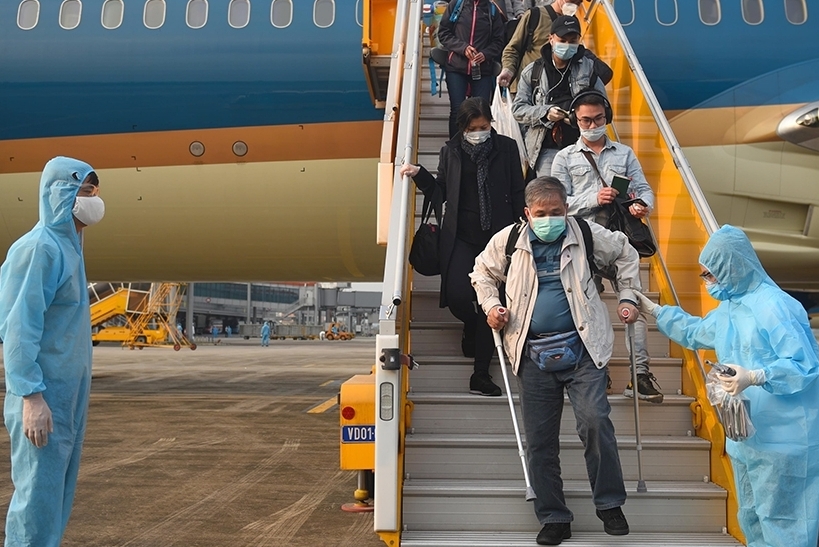 |
PM orders to crack down on COVID-19 prevention violators |
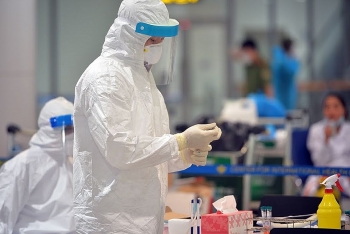 |
Nikkei: Vietnam among Asian trio that keep COVID near zero |
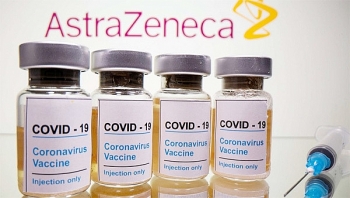 |
Advantages of UK’s Oxford – AstraZeneca vaccine that Vietnam has purchased |
More intensified measures to fight Coronavirus
The World Health Organization (WHO) has called on European countries to intensify coronavirus measures as the region deals with a new variant that was first detected in the UK, according to CNN Edition.
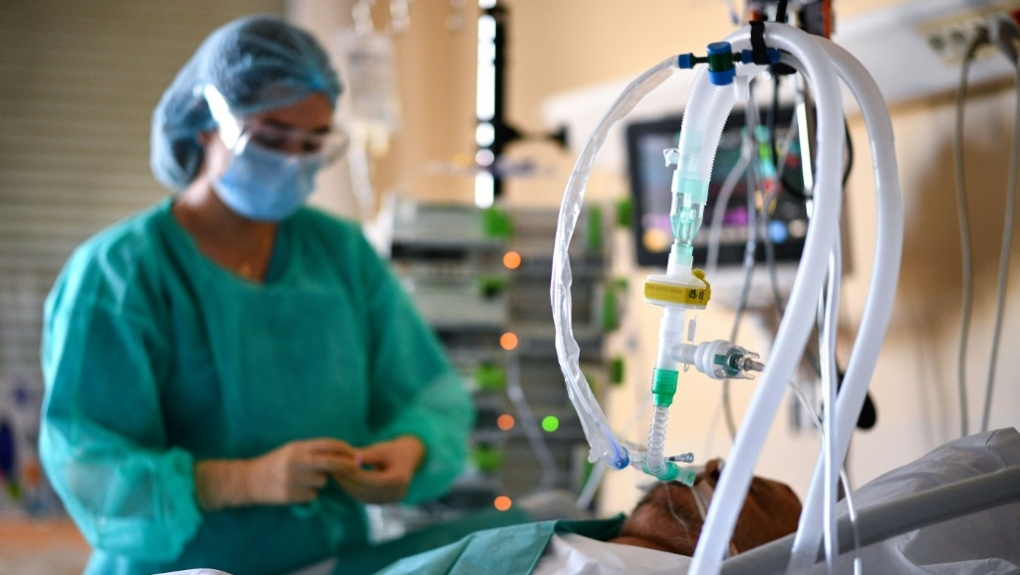 |
| WHO Europe director Hans Kluge said Thursday that further measures were needed to 'flatten the steep vertical line' of rising cases in some countries. (Photo: Reuters) |
WHO Europe director Hans Kluge said Thursday that further measures were needed to "flatten the steep vertical line" of rising cases in some countries.
"It spreads across all age groups, and children do not appear to be at higher risk. But, with increased transmissibility and similar disease severity, the variant does, however, raise alarm as without increased control to slow its spread, there will be an increased impact on already stressed and pressurized health facilities," said Kluge.
While the variant appears to spread more easily than others, there's no evidence that it's any more deadly or causes more severe disease.
Health officials have also downplayed the possibility that coronavirus vaccines won't work against the variant.
But in the UK, health workers are struggling with a steep rise in cases and deaths. The country recorded a total of 1,041 further deaths on Wednesday, as well as 62,322 new cases.
The crisis is particularly acute in London. On Thursday mayor Sadiq Khan said the capital was at risk of running out of hospital beds in the next few days.
"This virus is out of control," Khan told LBC radio. "The [National Health Service] is on the cusp of being overwhelmed. There has been no time during this pandemic where I've been more concerned than I am today."
Dangerous new variant of Coronavirus detected in U.K
A new variant of SARS-CoV-2, which various modelling exercises have estimated to be up to 70% more transmissible than the previously circulating form of the virus. In September, 2020, this variant represented just one in four new diagnoses of COVID-19, whereas by mid-December, this had increased to almost two thirds of new cases in London.
UK Prime Minister, Boris Johnson, decided with his scientific advisors that he had no credible alternative other than to impose even stricter restrictions on these parts of England, creating a new tier 4, which meant all non-essential shops and gyms closed, and people were asked to stay at home wherever possible (hospitality venues already had to close in tier 3).
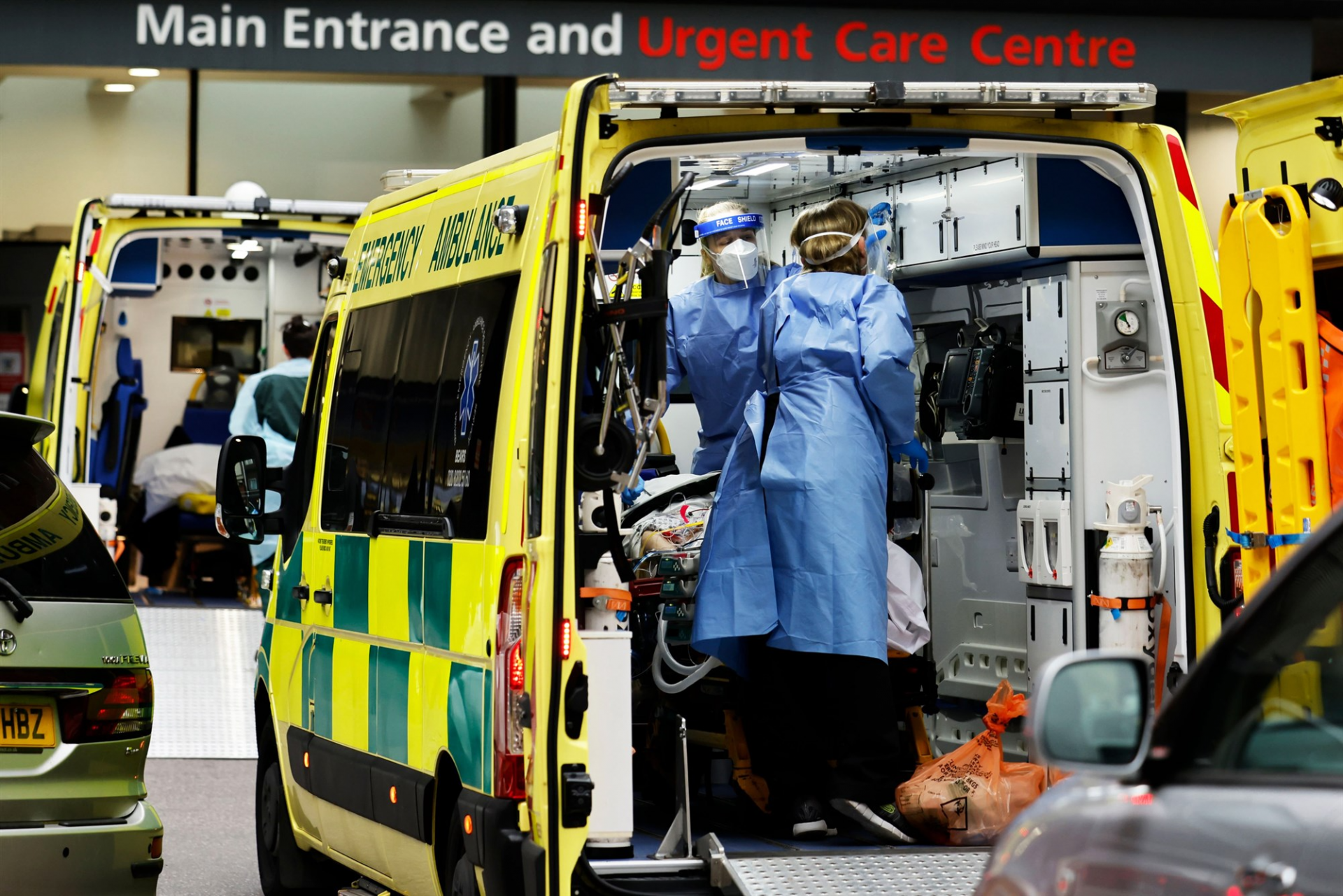 |
| Paramedics prepare to remove a patient from an ambulance outside Guy's Hospital in London on Tuesday. (Photo: AFP - Getty Images) |
However, until late December, 2020, the proportion of cases caused by the new variant were much lower in other parts of the country, with the northwest region that includes Liverpool and Manchester recording only 1 in 20 new cases of COVID-19 that were due to the new variant.
As a result, many parts of England continued in the lower tier of restrictions, until on Dec 30, 2020, Johnson, in response to surging numbers of new diagnoses including an all-time high of 53 000 on Dec 29, 2020, decided to move all parts of England into tier 3 or 4. This effectively meant that no restaurants, bars, or other hospitality venues would be open on New Year's Eve. However, the latest data (early January, 2021) shows that cases due to the new variant are increasing in all areas of the country, although the south and southeast continue to be the worst affected, told the Lancet.
According to research published on Dec 29, 2020, by the UK Health Agency Public Health England, the new variant appears to be no worse than the previous dominant strain of SARS-CoV-2 in terms of the risk of hospital admission, severity of illness, or mortality. The UK is confronting this new variant during the same month that two vaccines against the virus have been approved; the Pfizer-BioNTech and the Oxford-Astra Zeneca vaccines.
The Oxford vaccine in particular has raised hopes that the UK could regain control and turn the tide on the COVID-19 pandemic by as early as April 2021, since its storage requirements are a lot less complex than the deep cold required for the transport and storage of the Pfizer vaccine.
This means that it will be far easier for vital vaccine supplies to reach, and be stored at, venues such as care homes for the elderly. Vaccinations with the new Oxford vaccine were due to begin across the UK on Jan 4, while vaccinations with the Pfizer-BioNTech vaccine continue. In another key policy shift, the UK's medical experts said it was crucial to inoculate as many vulnerable people as possible with the first dose, since this would offer the most protection, rather than giving people the regular two-dose schedule of either vaccine. The second dose, they explained, can be given in the subsequent weeks or months after mortality and admissions have hopefully stablised.
At a media briefing on Dec 30, 2020, PM Johnson said: “The public must redouble its efforts to control the virus at this critical moment” before adding he was confident the country's situation will be “very much better” by April 5, 2021 (Easter weekend). “All of these measures in the end are designed to save lives and protect the NHS. For that very reason, I must ask you [the public] to follow the rules where you live tomorrow night and see in the new year safely at home.”
However, the new variant has piled additional pressure on to the speed at which vaccination must be achieved. Hayward is worried that, just as had been possible in the first wave, very vulnerable people, such as the homeless, could be ruthlessly exposed due to plunging winter temperatures and the failure of the UK government to so far provide local authorities with the resources to house homeless people in single room accommodation, mainly hotels, which are mostly standing empty due to the temporary death of the tourism industry.
Back in March, 2020, the government helped the appropriate agencies and organisations get everybody off the streets and into such accommodation. “Many homeless people have this time had to stay on the street because of the dangers of opening communal night shelters and alternative provision not being available. This new coronavirus variant especially could cause havoc and a huge surge of cases in people least equipped to face them”, says Hayward.
The charity Crisis at Christmas has housed large numbers temporarily in single room accommodation over the Christmas period, but they will need to return to the streets in early January. Hayward warns that: “If there are severe cold weather spells after this it is likely communal shelters will need to open to prevent people freezing. Due to the government's failure so far to repeat their efforts of earlier this year, homeless people are currently facing a stark choice between the dangers of cold or the dangers of COVID-19.”
The UK remains one of the most badly affected countries. As of Dec 30, 2020, it had recorded more than 2 million cases of infection and more than 70 000 deaths. Driven by the new variant's increased infectiousness, the UK has reported more than 50 000 cases a day (a new record) in the last few days of December and the first few days of the new year. Almost 1000 deaths were reported on Dec 30, 2020, alone, and there are fears that the pandemic may get very much worse in the country before it gets better. However, the hope is that deaths and hospitalisations will plummet as the number of elderly and vulnerable people receiving the vaccine sharply increases in the coming weeks.
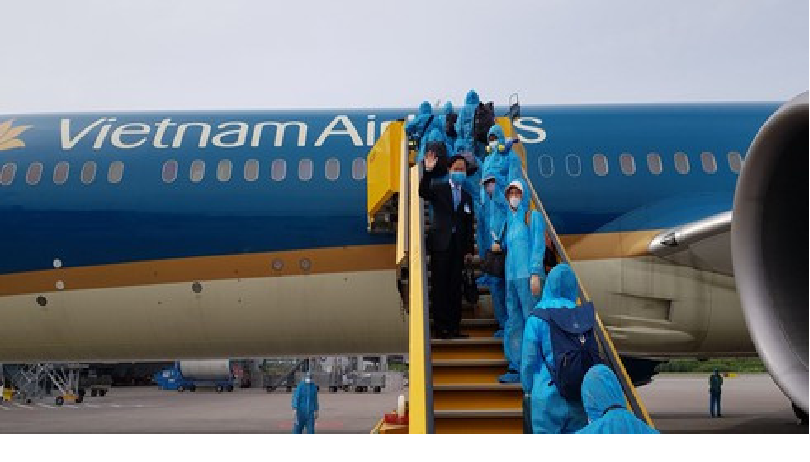 |
Vietnamese citizens stranded in Sweden and Finland safely repatriated
A Vietnam Airlines flight carrying a total of 310 Vietnamese citizens who had been left stranded in Sweden and Finland as a result of the ... |
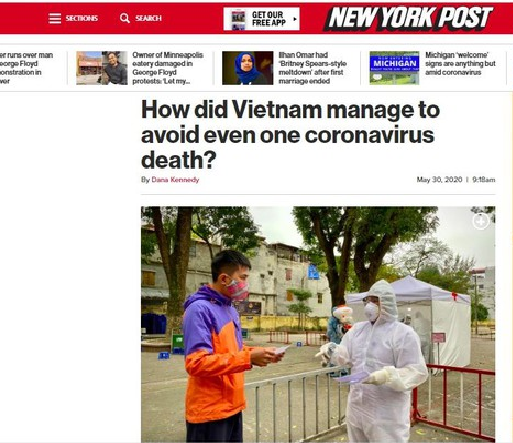 |
The New York Post praises Vietnam’s achievement in the combat against COVID 19
The New York Post lately posted a story by Dana Kennedy with the title “How did Vietnam manage to avoid even one coronavirus death?” to ... |
 |
COVID 19 prevention: ASEAN, EU boosts cooperation
ASEAN and EU pledged their determination to strengthen cooperation in combating the ongoing novel coronavirus (COVID-19) pandemic that is spreading throughout the globe, at a ... |
Recommended
 World
World
Pakistan NCRC report explores emerging child rights issues
 World
World
"India has right to defend herself against terror," says German Foreign Minister, endorses Op Sindoor
 World
World
‘We stand with India’: Japan, UAE back New Delhi over its global outreach against terror
 World
World
'Action Was Entirely Justifiable': Former US NSA John Bolton Backs India's Right After Pahalgam Attack
 World
World
US, China Conclude Trade Talks with Positive Outcome
 World
World
Nifty, Sensex jumped more than 2% in opening as India-Pakistan tensions ease
 World
World
Easing of US-China Tariffs: Markets React Positively, Experts Remain Cautious
 World
World


